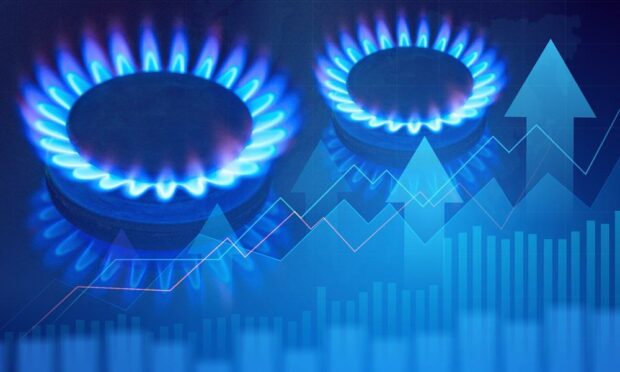Campaigners are demanding a “new deal” for the 220,000 customers across northern Scotland hit the hardest by a crippling energy cost crisis.
They claim bill-payers are treated as second-class citizens by the UK Government and regulator Ofgem just because they are not connected to the gas grid.
Mains gas is cheaper than electric or alternative energy sources, and areas without access to gas are known to have far higher levels of fuel poverty.
Newly-released data shows 15% of UK properties are off the gas grid, rising to 19% in Scotland.
But the figure for the Highlands and Islands is 66%, or 136,000 homes.
There are no homes at all using mains gas in Orkney and Shetland, according to the UK Government statistics, while 88% are cut off in the Western Isles.
In the Highland Council area, 61% of domestic properties had no mains gas in 2021, while in Argyll and Bute the rate was 56%.
Our analysis shows five of the 10 areas of the UK with the most off-gas properties are in the Highlands and Islands.
Meanwhile, in Aberdeenshire the proportion of homes without gas was 42%, some 51,000 properties, while in Moray it was 30% and in Aberdeen city it was 15%.
UK Government sweeping the issue ‘under the carpet’
Di Alexander, the former chairman of Scotland’s Rural Fuel Poverty Taskforce, said it is a “huge problem”.
He said: “Though the link between the unavailability of mains gas and a consequentially much-increased likelihood of fuel poverty is universally accepted, both Ofgem and the Westminster government continue to sweep the problem under the carpet and treat off-gas households as second-class citizens.”
Mr Alexander, who is chairman of the Highlands & Islands Housing Associations Affordable Warmth group, said the problem had been raised repeatedly with the government and regulator.
He said in the short-term, Ofgem has the power to introduce a “social tariff” that could at least level up the energy price playing field for the “vulnerable” households who live in off-gas areas and households.
But the campaigner said the solution to the problem is for the UK Government to “break the linkage once and for all between electricity and gas prices”.
The gas price currently sets the electricity price, but this adds to the frustration in the north of Scotland, which produces more energy than it uses from clean and renewable power.
Mr Alexander said: “There is both a pricing fairness argument and clean energy contribution quid pro quo argument to be made for predominantly off-gas areas like the Highlands and Islands getting a new deal from both Ofgem and government and it’s long, long overdue.”
Homes without access to mains gas often use heating oil, but prices have soared in the last year.
Labour MSP Claire Baker said: “The huge increase in the cost of heating oil directly impacts on those living off-grid and the lack of assistance from government means that many households in rural areas risk being pushed into poverty.
“Since the beginning of last year, Labour was calling off-grid households to be included in support for energy bills, but the UK Government failed to include them in initial support packages.
“Towards the end of the year, they finally announced some support but the £200 alternative fuel payment will not reach those households until February.”
Governement ‘committed to delivering’ Alternative Fuel Payment
A UK Government spokesman said: “We recognise people are struggling with the rising cost of living, including those who use heating oil and bottled gas to warm their homes.
“That is why we have increased the Alternative Fuel Payment to £200 and are committed to delivering this in February.”
Scottish Government minister Patrick Harvie has said he wants more sustainable options, such as heat pumps, installed to replace fossil fuel alternatives.
